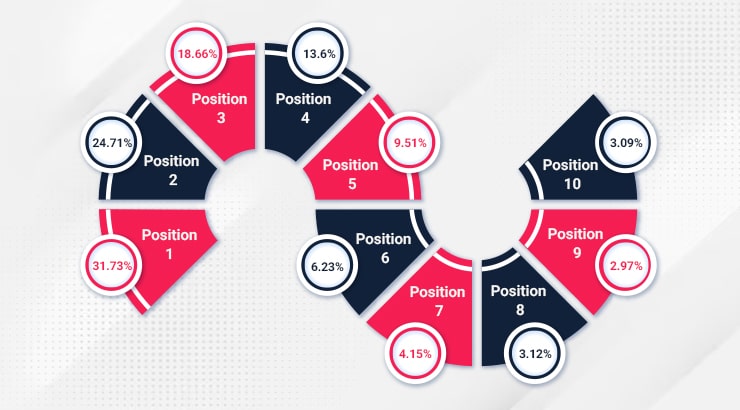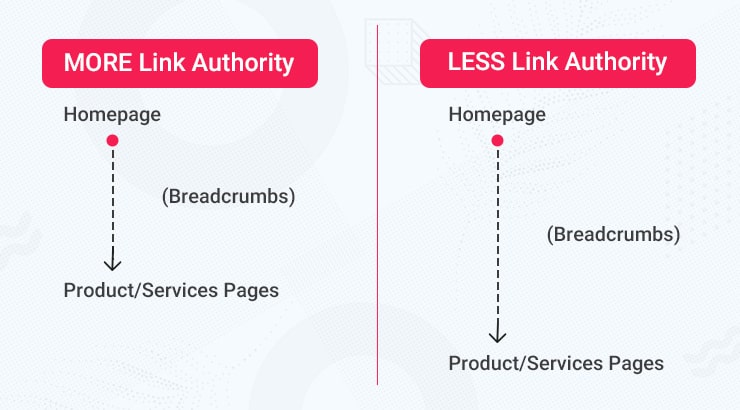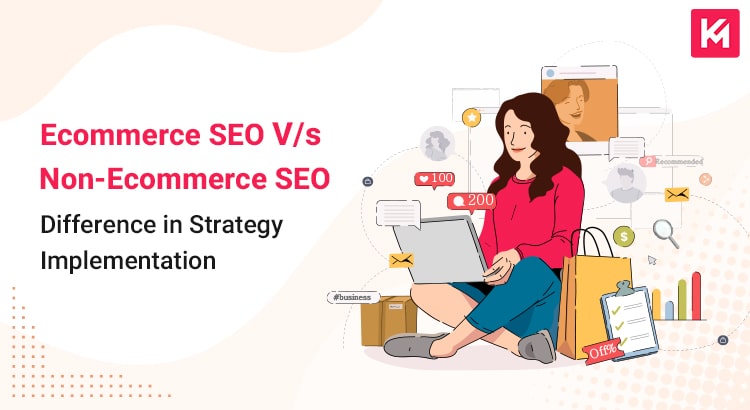The difference between eCommerce SEO and Non-eCommerce SEO has always been a hot topic because of the controversies regarding inclusions in the strategy. We’ve discussed the topic with our expert team of SEO executives, and here is what we have found:
- Failing to know the difference between the two will result in poor implementation, and SERP rankings will consequently suffer.
- The inclusions in the strategy are almost the same, but how each of the constituents is focused differs in eCommerce and non-eCommerce SEO.
- eCommerce SEO is more technical as compared to non-eCommerce SEO.
Let’s Begin:
WHAT IS AN ECOMMERCE SITE?
An eCommerce site is an online store where users can buy or order things online with a few clicks. There are three types of eCommerce sites: B2B, B2C and C2C. Amazon, Flipkart, eBay, and Walmart are examples of eCommerce sites.
B2B
A B2B website usually provides services to other businesses rather than approaching customers directly. Raw material providers are one such example of B2B sites. B2B sites can be eCommerce or non-eCommerce. According to recent statistics, “Approximately 65% of the B2B businesses have eCommerce capabilities.”
B2C
B2C is a type of business that sells products and services to direct prospects. The global B2C market is about USD 4.01 Million. Buyers nowadays love to explore online platforms. They usually shop from websites. Those who love offline shopping visit the store’s website from which they plan to buy the products and services. So, having a website can’t be underrated for any business.
C2C
When you yourself can buy from the website at which you are selling the products and services, it is a C2C store. Amazon, Etsy, Ali Express are some examples of the CTC store.
An eCommerce site needs to rank on the first page of Google. It is suggested not to be satisfied if your website has ranked on the first page but has achieved the last spot. To gain a higher conversion rate, it is essential to aim for the highest spot:

WHAT ARE NON-ECOMMERCE SITES?
The websites that do not have eCommerce capabilities or do not offer the facility to buy online are known as non-eCommerce sites. Such websites do not require the users to make the necessary action on the website; rather, the website is a source to provide the users with the necessary information. The website owner wants users to call or email him or reach out to his brick-and-mortar store.
For a better understanding, you can consider the example of a company acquired by Kinex Media, named Infino
It is one example of a non-eCommerce site. This site is created for hiring purposes. This website is not expected to generate any business.
HOW ARE THE SEO STRATEGIES FOR ECOMMERCE AND NON-ECOMMERCE BUSINESS DIFFERENT?
Since both businesses’ goals and expectations are different, experience the difference in the strategies of eCommerce and non-eCommerce businesses.
Keyword Research
The process to research keywords is the same, whether it is an eCommerce site or not a non-eCommerce site. But the way keywords are filtered differently in both these cases. When it comes to eCommerce projects, the keywords with buying intent will be filtered out. But if it is about non-eCommerce projects, commercial and informational keywords must be worked on.
Site Architecture
Whether an eCommerce site or a non-eCommerce site, site architecture maintenance and organization are essential. In the case of an eCommerce site, it requires meticulous attention to ensure the product pages are not far away from the homepage. The farther the product pages remain from the homepage, the lesser the link authority they will have.
Non-eCommerce sites usually have fewer product and service pages; thus, maintaining the site architecture appears seamless.

Content
In the case of eCommerce websites, the content is basically product based. But non-eCommerce sites can write on trending and hot informational topics by utilizing a number of tones – casual, formal and informal. eCommerce content involves embedding commercial keywords with LSI versions. On the contrary, non-eCommerce can call for both commercial and informational keywords.
SOLUTIONS TO VARIOUS ISSUES ARE COMMON
Thin Content & Duplication Issues
Content duplication issues can easily be dealt with by either replacing the duplicate content with the original content, or by using no-index tags and canonical tags. No-index tags signals Google not to index the page. But canonical tags helps Google know that a particular page is not the master version & if the original content is to be checked then a specific URL is to be reached.
On-Page Optimization Techniques
The way on-page elements are tactically handled remains same in both the cases. For example:
- Regular updation of website’s sitemap
- Optimization of Title tags
- Social media linking
- Optimizing URLs
- Updating alt text
- Using catchy and promising meta descriptions
- Reducing thin content by using lengthy and bulleted content
- Optimizing content with LSI keywords’ embedment
- Opting for regular blogging
- Disavowing outdating & irrelevant backlinks
Off-Page SEO Techniques
Off-Page elements optimization process & constituents also remains the same:
- Creating valuable backlinks
- Social media marketing
- Posting guest content
- Forum posting
- Local listing
Conclusion
In conclusion, the main difference between eCommerce SEO and non-eCommerce SEO lies in the objective of optimizing a website. eCommerce SEO focuses on optimizing an online store to increase its visibility and drive more sales, while non-eCommerce SEO aims to improve the visibility and ranking of a website to attract more visitors and build brand awareness.
eCommerce SEO requires a different approach and techniques compared to non-eCommerce SEO, such as product optimization, shopping feed management, and conversion rate optimization. On the other hand, non-eCommerce SEO requires techniques such as keyword research, content creation, and link building to attract and engage visitors.
Ultimately, both types of SEO are important and have different objectives, but the common goal is to improve the online visibility of a website and increase its traffic.

